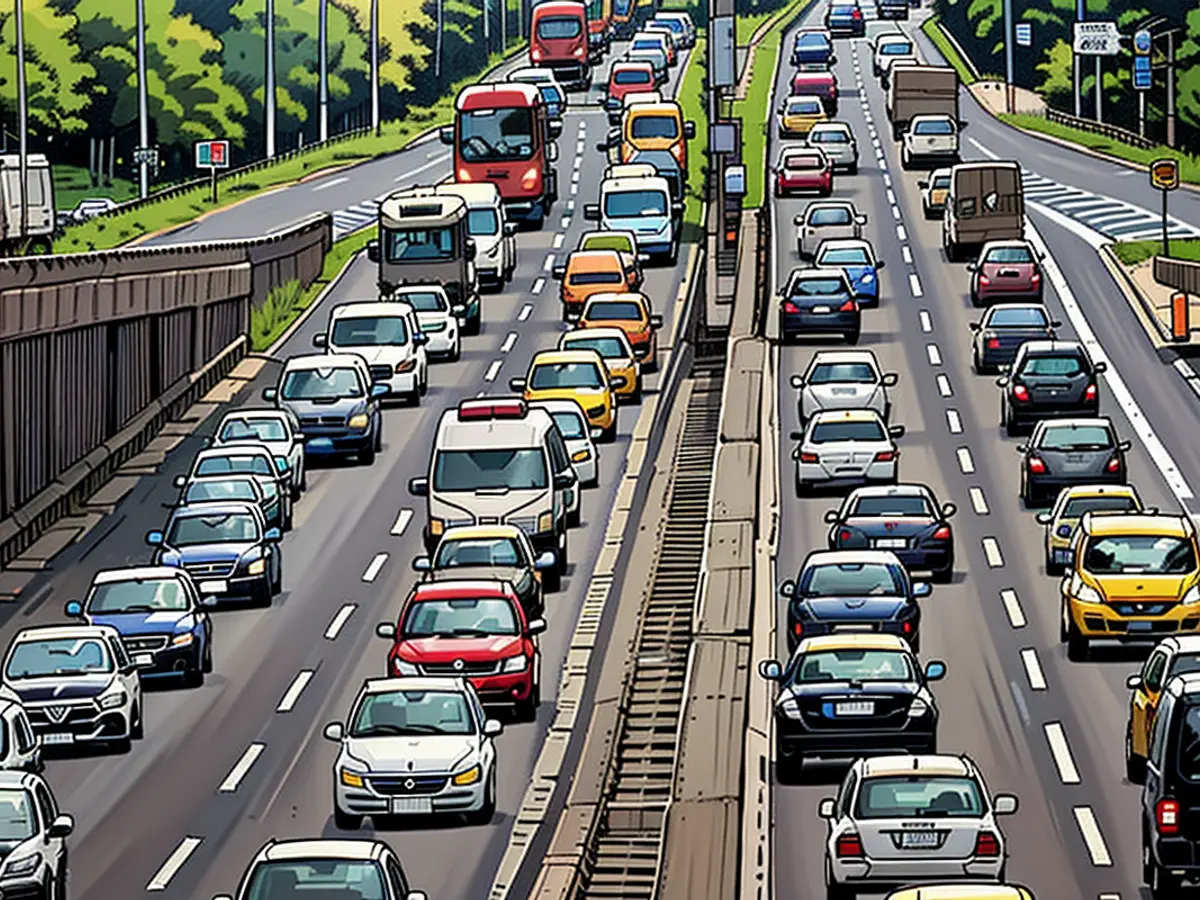Gridlocks inflict significant time loss on daily commuters.
In some major German cities, workday commuters continue to endure lengthy hours trapped in traffic, with annual statistics suggesting a substantial financial toll. A study indicates these delays lead to exorbitant costs, but potential solutions have been proposed, primarily focusing on Paris.
In accordance with traffic data provider Inrix, an average German driver spends approximately 40 hours annually gridlocked, equivalent to half a standard hourly salary translating to around 427 Euro per individual. These time losses total a staggering 3.2 billion Euro for drivers nationwide, reflecting a 14% rise compared to 2022, as per Inrix's report. Adding to this, one can expect comparable surges in fuel expenses in stop-and-go traffic conditions.
Berlin takes the crown for the city with the most traffic congestion, as revealed by traffic data analysts, with commuters typically enduring 55 hours in traffic jams here in 2023. Stuttgart follows closely with 53 hours, while Munich and Cologne each record 52 hours, Dusseldorf 49 hours, Bremen and the Ruhr area each 45 hours, and Hamburg manages a relatively modest 43 hours—still equating to over a week's worth of time for the average daily commute.
Hamburg, however, performs relatively well in comparison, as commuters in cars still had to devote more than a week's worth of time for their daily commute, according to Inrix's comparison of nighttime trips on open roads with daytime business hours.
An interesting trend emerged in trips towards city centers, which exhibited a substantial decrease in the million-city metropolises Berlin, Hamburg, Munich, Cologne, and Frankfurt am Main. At the same time, travel delays due to traffic jams or congestion increased. These findings suggest a gradual urban exodus and a stronger shift in traffic towards city outskirts, as analysed by traffic data experts.
Early Morning Commuter Traffic Surge
Commuter traffic flow has shown a rise during morning hours. The A8 in Stuttgart-Ehningen witnessed the most congested road section in the previous year, with the Middle Ring in Munich and the Elbtunnel in Hamburg also serving as significant traffic chokepoints.
World traffic volumes rebounded in 2023. Paris, with its emphasis on promoting bicycle use in city centers, serves as a model for cities worldwide, according to traffic analyst Bob Pishue. Moreover, the success of programs like the Germanyticket and London's City Congestion Charge Program is closely monitored. In Germany, public transportation options such as local trains, trams, and buses were utilized more frequently compared to 2022.
Read also:
Despite the increase in early morning commuter traffic, particularly on the A8 in Stuttgart-Ehningen and other major roads in cities like Munich and Hamburg, employees are still facing significant delays due to traffic jams. Efforts to improve traffic flow and reduce congestion are crucial, as these delays cost German employees an average of 40 hours per year, amounting to around 427 Euro in lost wages.








